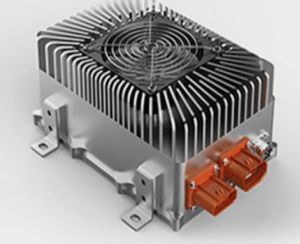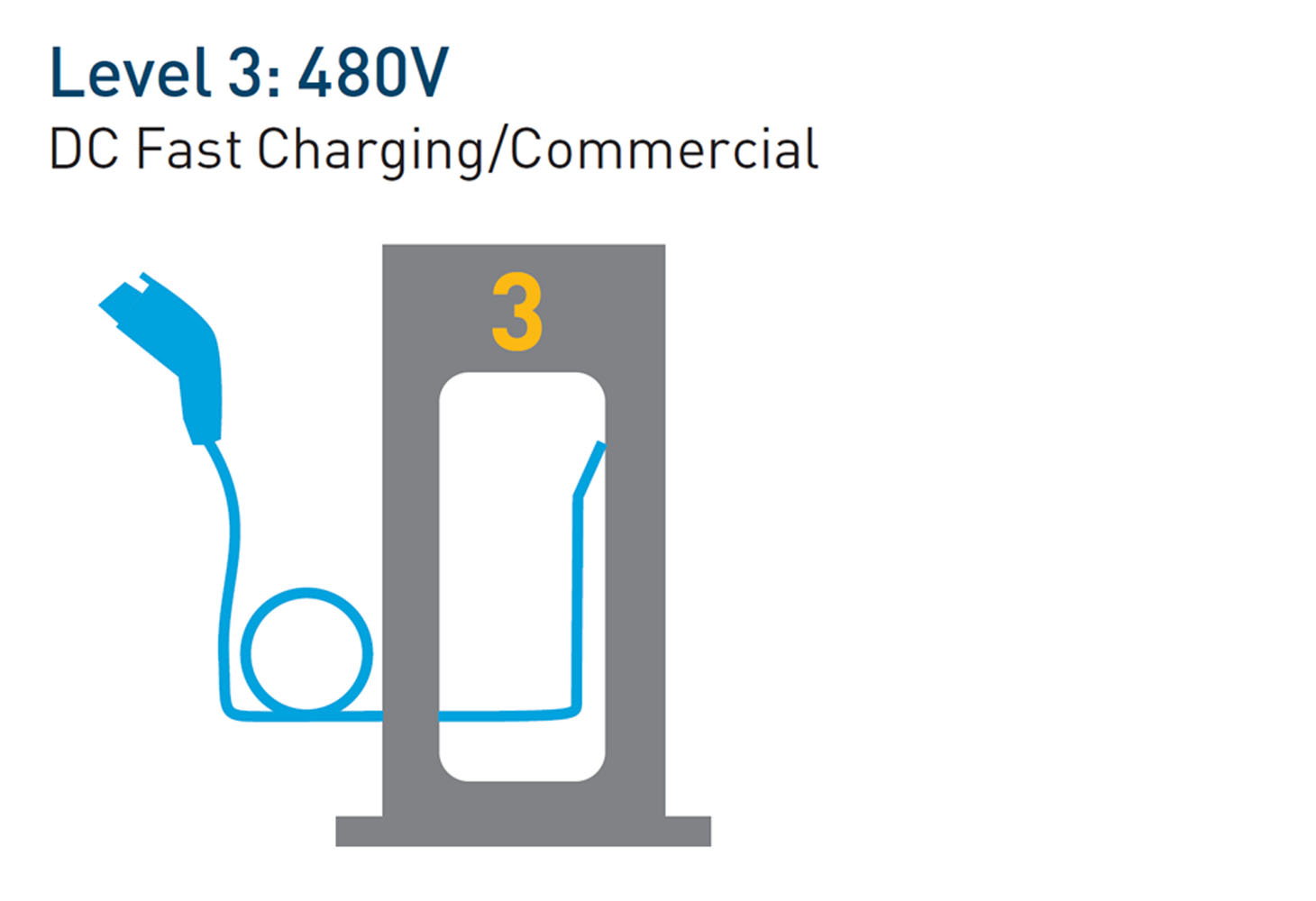Choose the perfect charging station for your electric vehicle.
Select your vehicle below and we’ll show you:
The “Ideal Station” for your vehicle’s make and model. Charge your car as fast as you can.
A “Lower Cost Alternative” may not charge to full quite as fast, but this charging station costs less.
A “Future Proofing” station. Every year brings more EVs with faster-charging acceptance rates. If you anticipate more EVs in your future, it’s smart to spend a bit more now rather than upgrading later.

Level 3, or DC Fast Chargingu00a0u2013 Level 3, sometimes referred to as DC Fast Charging or DCFC (direct current fast charging), ranges from 200 to 800 VDC (direct current volts) and can recuperate up to 60-80% of an electric vehicle’s range in as a little as 30 minutes. This is a fantastic solution for charging on the go.u00a0However, there are still some major challenges Level 3 EV charging stations face, making them an impractical choice for most residential and commercial charging areas. You will typically find Level 3 stations purchased by your state government along interstate highways.
","tablet":"Level 3, or DC Fast Charging u2013 Level 3, sometimes referred to as DC Fast Charging (direct current fast charging), ranges from 200 to 600 VDC and can recharge an electric vehicle in as little as 30 minutes. This is a fantastic solution for charging on the go. However, there are still some major challenges Level 3 EV charging stations face, making them an impractical choice for most residential and commercial charging areas. You will typically find Level 3 stations purchased by your state government along interstate highways.
"}},"slug":"et_pb_text"}" data-et-multi-view-load-tablet-hidden="true" style="box-sizing: border-box; margin: 0px; padding: 0px; border: 0px; outline: 0px; text-size-adjust: 100%; vertical-align: baseline; background: transparent; position: relative;">What is a Level 3 Charging Station?

Level 3, or DC Fast Charging – Level 3, sometimes referred to as DC Fast Charging or DCFC (direct current fast charging), ranges from 200 to 800 VDC (direct current volts) and can recuperate up to 60-80% of an electric vehicle’s range in as a little as 30 minutes. This is a fantastic solution for charging on the go. However, there are still some major challenges Level 3 EV charging stations face, making them an impractical choice for most residential and commercial charging areas. You will typically find Level 3 stations purchased by your state government along interstate highways.
Level 3 Charging Stations Don’t Make Commercial Sense
Specialized Infrastructure – Direct current fast charging involves electricity in its original form instead of the modified version, thus having a much higher voltage and higher power requirements than other types of chargers. Buildings and other installation sites will usually require specialized electrical infrastructure to safely support electric load capacities. Specialized infrastructure may also require new transformers, additional utility services, and recurring maintenance, all of which can increase costs.
Cost – Owning and managing a Level 3 station is incredibly expensive, ranging from between or upwards of $15,000-50,000 USD. In addition to the specialized infrastructure and technical equipment, it would also entail ongoing utility and maintenance costs. Due to its more complex nature and possession of more function-critical components, the maintenance of Level 3 EVSE is generally more costly than Level 2 equipment itself.
Interoperability – There isn’t one standard plug for all EVs. In the US, there are four competing standards: CHAdeMO, Tesla, SAE J1772, and CCS. Different electric vehicles may also have differing charging ports. Depending on the vehicle, not all of them may be compatible with Level 3 EVSE since there isn’t a set standard for direct current fast charging.
Level 3 Charging Stations Are Not Suitable For Your Home
Not all EV charging stations are created equal. Just because a charger is a Level 3 does not mean it will automatically be the highest quality charger. When purchasing EVSE, there are other factors besides speed you should take into consideration.
Electrical Capacity – Indeed, DC fast charging can reach up to 80% state of charge in less than 30 minutes. However, even DC charging can take over an hour since that last 20% charges much slower than when filling from 20-80%. Additionally, DC fast charging requires large amounts of power to be dispensed through the system in a short amount of time, causing concern that excessive demand can strain the power grid. It typically costs a lot more to use power quickly than over time.
Costs – The aforementioned high costs of commercial Level 3 charging infrastructure, installation, and maintenance also apply to residential EV charging.
Need – Unlike gas stations, there is no need to make trips specifically to charge up an EV. Over 80% of EV charging takes place at home instead of in public. There is very little need to charge that fast at home since the car sits there for hours. For more information on EV charging times, you can view our EV charging times page.
It is incredibly impractical to install a Level 3 DC charger at home. Instead, investing in a Level 2 charger will provide you with the most long-term benefits.
Contact Person: Miss. Kiki
| WhatsApp : | +8617763224709 |
|---|---|
| Skype : | +8617763224709 |
| WeChat : | +8617763224709 |
| Email : | kiki@lifepo4-battery.com |